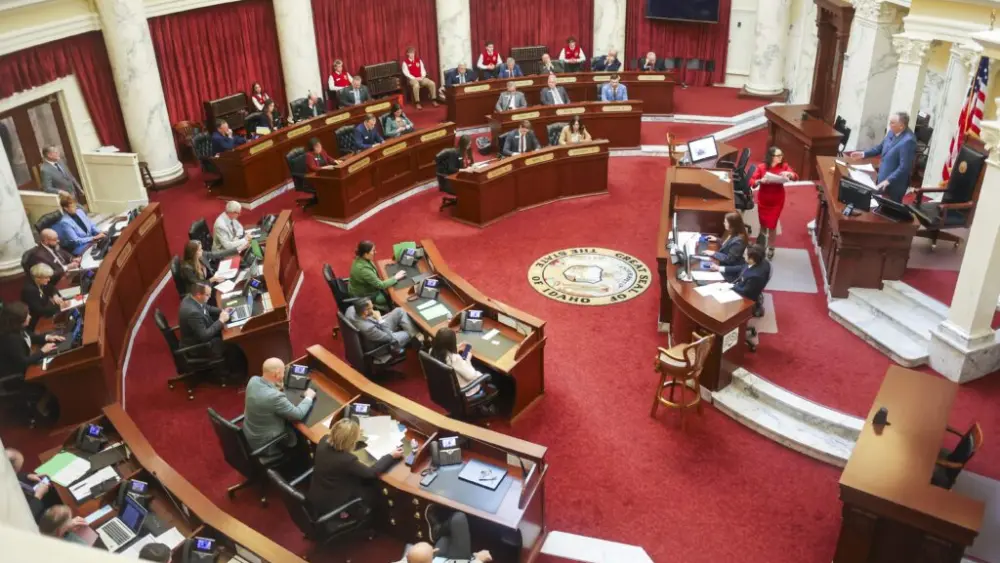PORTLAND, OR – Oregon National Guard troops set to return home before Thanksgiving, after waiting nearly two months at a coastal training camp for legal battles to play out over a potential deployment to Portland, might instead remain at camp.
On Sunday evening, federal lawyers made an “emergency” plea to the 9th Circuit Court of Appeals asking that they overrule a lower court judge’s recent order returning command of 200 federalized Oregon Guard troops to the state. The court hadn’t set a schedule for responding to the request as of Monday morning.
Those troops, under a Nov. 7 order from U.S. District Court Judge Karin Immergut, are scheduled to be back under state control by Friday, and Oregon Gov. Tina Kotek has said she wants troops sent home from Camp Rilea in Warrenton as soon as possible.
The 200 guardsmen have been under federal command since Trump and Defense Secretary Pete Hegseth on Sept. 27 attempted to deploy the troops to an Immigration and Customs Enforcement facility in Portland, citing a rebellion and inability to execute federal immigration law. Protests outside the facility since June have remained mostly small and mostly peaceful outside of a handful of larger events for which local and state law enforcement provided crowd control.
Immergut, a Trump appointee, found the evidence on the ground did not support the administration’s justification, and that Trump and Hegseth violated the federal law and the Constitution. Federal lawyers have appealed Immergut’s full decision, but their emergency request Sunday is focused on keeping the Oregon troops federalized until that appeals case gets heard, which filing deadlines indicate could be as late as March 2026.
The Justice Department’s Sunday filing also revealed the federal government plans to extend to an unknown date the Oregon National Guard troop mobilization.
Hegseth recently extended the federalization of 200 California National Guard troops sent to Oregon until Feb. 2, 2026. Those troops, federalized since June, had been slated to return to California and the command of Gov. Gavin Newsom by November.
Federal lawyers indicated that defederalizing Oregon troops and sending them home five days earlier than previously scheduled and before the 9th Circuit hears its full appeal would cause those troops irreparable harm. Reasons given are that while they are at Camp Rilea they get federal pay and military health care coverage and sending them home early might disrupt this, and that it creates “logistical challenges” because troops would need to go to Texas for, “out-processing, which includes essential medical and administrative screenings that require both time and manpower.”
In their emergency request, federal lawyers made an argument they’ve made repeatedly in the legal battles brought against them by the state — that the courts do not have the power of review when it comes to the president’s decision to deploy Guard troops.
“The accompanying motion requires resolution on an emergency time frame because the district court impermissibly second-guessed the Commander in Chief’s military judgments — something district courts lack the authority and competence to do,” they wrote.
Section 12406 of Title 10 of the U.S. Code gives the president power to federalize and deploy National Guard troops when the country is in danger of invasion or rebellion or is unable “with the regular forces” to execute federal laws. Immergut found Trump did not meet this standard when he attempted to send troops to Portland, and that he violated the 10th Amendment, which ensures that states hold governance and policing power not granted to the federal government by the Constitution.
Three federal judges on the 9th Circuit Court of Appeals have already ruled that the president’s judgements are subject to judicial review, but that the president is entitled to a “great level of deference” for determining when troops are needed.
The U.S. Supreme Court is expected to take up the issue this month in a similar case over Trump’s attempted deployment of Texas National Guard troops to Illinois.
Oregon Capital Chronicle is part of States Newsroom, a nonprofit news network supported by grants and a coalition of donors as a 501c(3) public charity. Oregon Capital Chronicle maintains editorial independence. Contact Editor Julia Shumway for questions: info@oregoncapitalchronicle.com.





